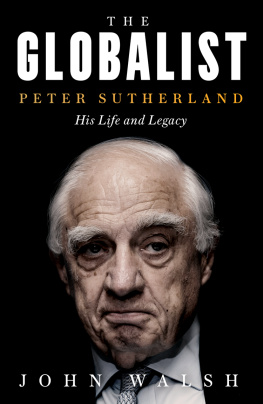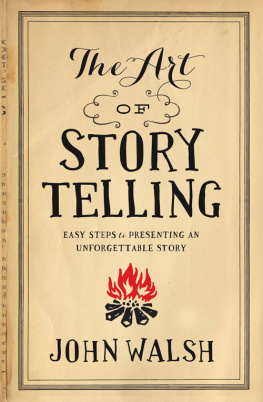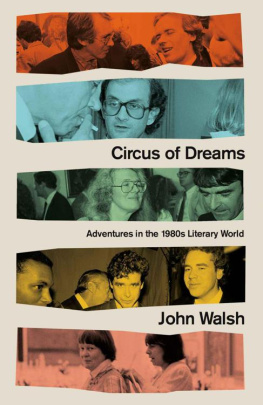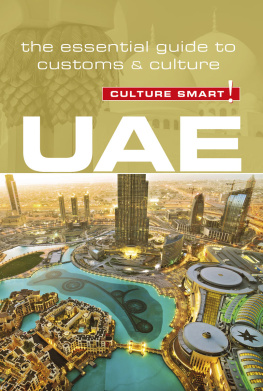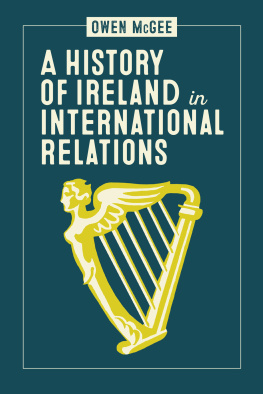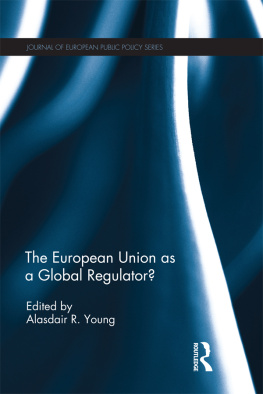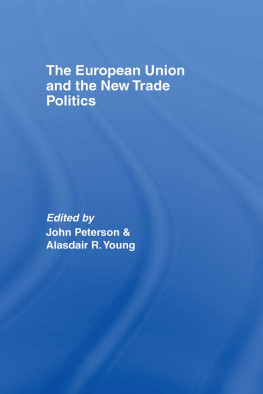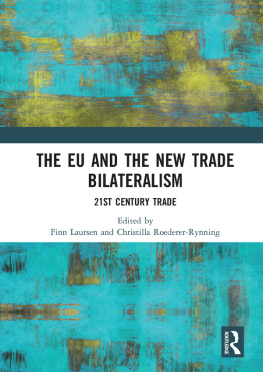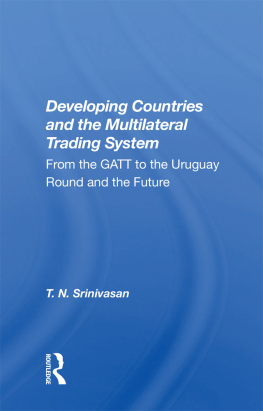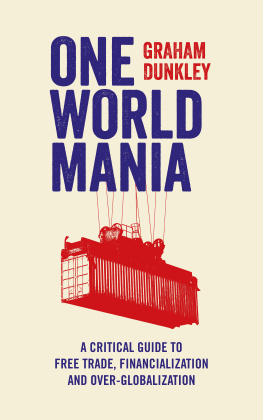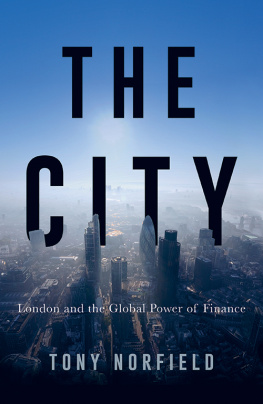Contents
Contents
Guide
THE GLOBALIST
PETER SUTHERLAND HIS LIFE AND LEGACY

William Collins
An imprint of HarperCollinsPublishers
1 London Bridge Street
London SE1 9GF
WilliamCollinsBooks.com
This eBook first published in Great Britain by William Collins in 2019
Copyright John Walsh 2019
Cover photograph Getty Images
John Walsh asserts the moral right to be identified as the author of this work
A catalogue record for this book is available from the British Library
All rights reserved under International and Pan-American Copyright Conventions. By payment of the required fees, you have been granted the non-exclusive, non-transferable right to access and read the text of this e-book on-screen. No part of this text may be reproduced, transmitted, down-loaded, decompiled, reverse engineered, or stored in or introduced into any information storage and retrieval system, in any form or by any means, whether electronic or mechanical, now known or hereinafter invented, without the express written permission of HarperCollins
Source ISBN: 9780008327613
Ebook Edition October 2019 ISBN: 9780008327620
Version: 2019-09-16
For my wife Mary, my sons Hugh and Dominic,
and my parents, Tom and Maura.
O N THE MORNING OF 11 SEPTEMBER 2016, A seventy-year-old Irishman suffered a heart attack and collapsed on a footpath in London. He had been walking to mass, as he had done every Sunday throughout his life.
A number of people rushed to his aid. He was carrying no identification. During the nine minutes it took the ambulance to arrive, those who attended to the stricken man could scarcely have realised who lay before them.
It was Peter Sutherland. The father of globalisation and Gods Banker are among the soubriquets he had collected during his career. He was possibly the most influential Irish person ever and a key figure in world history over the past few decades.
In many ways, he was the personification of the changing relationship between Ireland and Britain. As a European commissioner for competition he had taken on the British government and prevailed. He would later become chairman of BP, one of the UKs largest companies.
He operated at the heart of the British establishment, yet he remained an outsider. He was a fiercely proud Irishman. And even though his influence spanned continents, he never strayed too far from his roots.
P ETER DENIS SUTHERLAND WAS BORN INTO A prosperous family in Dublin on 25 April 1946. His parents, Billy and Barbara, lived on The Hill in Monkstown, a middle-class village in south Dublin. Ireland had remained neutral during the Second World War, but memories of two painful conflicts that marked the birth of the Irish state over twenty years before were still an open sore; the country was economically underdeveloped and would remain so for another five decades. But Dublin retained characteristics of its former imperial past. There was the citys grandeur, its private schools and private clubs. This was the Dublin into which Sutherland was born, and which would mould his formative years.
Peter had two sisters, Karen and Gill, and a younger brother, David, who predeceased him in 2006. But it was his father who was a strong and enduring influence on his life. Billy Sutherland along with the father of Peter Mathews, the late Fine Gael TD (Teachta Dla, a member of the Dil) was a partner in the insurance firm Mathews, Mulcahy and Sutherland.
William Sutherland and his two sons, William Jr (Peters great-grandfather) and George, arrived in Ireland from Wick in Scotland around 1850. They were coopers by trade. William Jr, a Scottish Presbyterian, married Sarah Cooke, a Roman Catholic in Dublin in 1857. Five years later the couple moved to Cork, and George followed his brother to the city, where the two of them opened their own businesses. Records from 1870 show that George was a fish merchant at The Coal Quay, while William is listed as a publican at 27 Cook Street. By 1880 when William and Sarah had eleven children William and George are both listed as fish merchants with substantial commercial and residential property in Lavitts Quay.
Between 1880 and 1887, William moved to Newcastle in England on his own. He returned to Sarah shortly before his death, whereupon he converted to Catholicism. Sutherlands grandfather, also called Peter, was born in 1862. He moved to Dublin and became the Treasurer of Dublin City Council, marrying Mary Fitzpatrick in 1906. Sutherlands father, William George Anthony, was born in 1914.
Sutherland was educated at Gonzaga College, a Jesuit school in the affluent Dublin neighbourhood of Ranelagh. Even though Gonzaga had only opened its doors in 1950 four years before Sutherland started it had already established itself as the school of choice for Irelands upper middle classes. It would soon eclipse the handful of other private schools in Dublin.
A former colleague of Sutherlands at the Law Library who attended Blackrock College described Gonzaga as Dublin 4 elitist It had a We will educate the next leaders of the state mentality. Blackrock might have had pretensions but the Holy Ghost fathers were basically fellas building churches in Nigeria. There would have been a lot of boarders, farmers and merchants sons in Blackrock the sort of boy you wouldnt get at Gonzaga.
Gonzaga profoundly shaped Sutherland. Colm Barrington the son of Tom Barrington, the first director of the Institute of Public Affairs, and nephew of Donal Barrington, the former Supreme Court judge was a contemporary of Sutherlands at Gonzaga. They subsequently became good friends. According to Barrington the Gonzaga boys had no idea how cloistered their existence was, because we didnt know any different. The Jesuits would make you feel that you were special rather than privileged and that Gonzaga was special and that you would go on to do special things. Barrington said his father was at a parent-teacher meeting at which Garret FitzGerald, the former Taoiseach, asked Fr Hughes, the rector, if the school should put more emphasis on the sciences. Fr Hughes wryly responded that at Gonzaga we teach our boys to be the leaders of scientists. Gonzaga instilled in Sutherland a lifelong passion for learning, although according to his friends and former teachers, the acquisition of knowledge was not one of his main priorities for most of his time at the school.
Tony Spollen met Sutherland on his first day at Gonzaga in 1954, and the pair remained lifelong friends, although their paths would cross in much more controversial circumstances in the 1990s. We became really good pals. I used to spend six weeks in the summer in his house in Monkstown. The Sutherlands would have been very wealthy so from an early age, he would have been used to privilege. The family had a housekeeper called Polly. His mother was an extremely nice woman, Barbara. He was always used to having the best.
Sutherlands typical summer would have revolved around Monkstown tennis club. He was a good, competitive tennis player. Another early childhood friend was John Arrigo, a neighbour in Monkstown. They too would remain lifelong friends. Sutherland had many passions in life, but in his early years nothing could compete with rugby. Myself and Peter became very good friends as we were both very keen on rugby. We were second row together initially and we then moved to front row with John Sisk in the middle, says Colm Barrington. Underlining the rarefied social strata of Gonzaga, John Sisk was a member of the Sisk family, the founders of one of Irelands largest construction groups.

